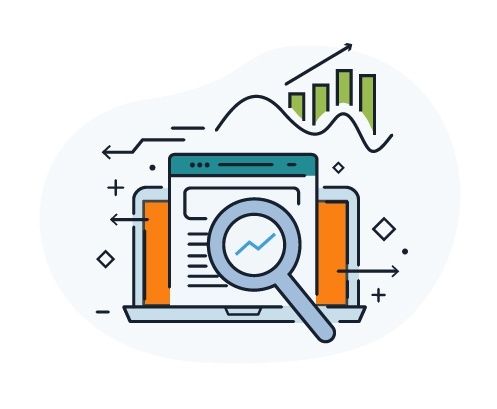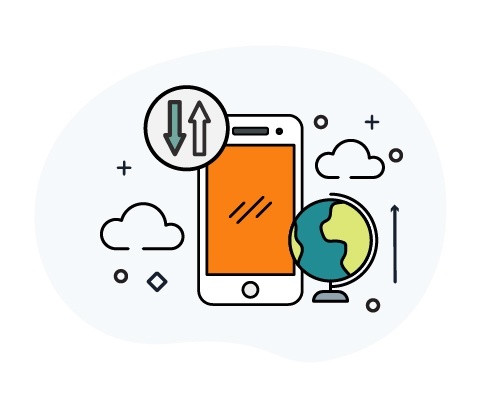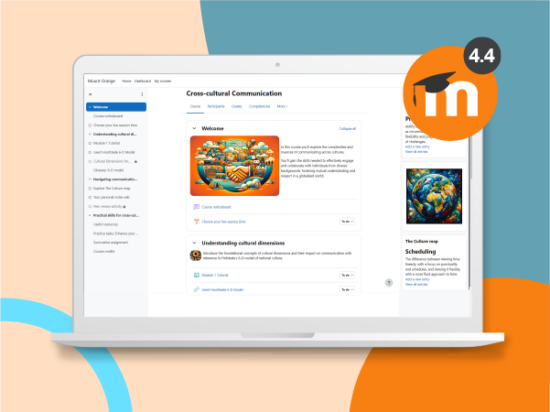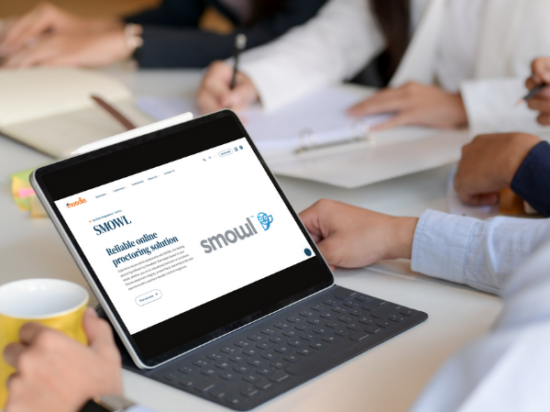The Covid-19 pandemic undoubtedly represents a major crisis for all industries and sectors, including education.
Teachers from different walks of life instantly became essential workers, on the frontline, and had to think of new ways to provide quality education in a digital environment.
Whilst presenting a challenge in education, the pandemic has at the same time, caused a paradigm shift in the way students and teachers learn, work and collaborate.
Instead of solely focusing on the negatives, we can observe new opportunities to rethink the education system and look to improve the sector’s overall sense of community cooperation. Enter Moodle , an online learning platform built in collaboration with its community and designed to empower educators by delivering quality education.
With that in mind, we relook at seven key pillars for quality education that Chad Outten, Founder and CEO of our Certified Premium Moodle Partner My Learning Space shared at MoodleMoot Global Online in July 2020: Resources, Communication, Collaboration, Assessment, Accreditation, Reporting and Accessibility.
Chad paired these seven pillars with the tools and features from the Moodle LMS that support them, to give educators resources to keep providing great learning experiences for their students when shifting to fully online learning.
Resources
In a time where remote learning and working is the new normal, educators need to employ proper digital resources to provide quality education to students. Many times, just appearing at a Zoom meeting and reading from a PowerPoint presentation is going to fall short.
The Moodle LMS enables educators to easily create resources to engage their learners, for example the H5P open source content creation tool. Integrated as a standard activity from Moodle 3.9 onwards, this lets teachers easily create interactive videos and content for their learners to engage with.
The H5P activity is also easy-to-use, as teachers can simply drag and drop the content that they want to present and create their activities in a snap.


Communication
Face-to-face interaction is no longer possible because of Covid-19 for obvious safety reasons.
One of the most distinct changes in the education sector is the shift to the digital classroom, affecting the way students and teachers communicate with one another. To provide an open space to communicate, Moodle has a built-in Forum activity, which serves as a central place where students can ask questions, share ideas, and help each other.
Collaboration
Collaboration in the traditional classroom happens organically. But with the shift online, students and teachers alike have to intentionally find new ways to meet and merge ideas, and many find that web conferencing is their preferred way to interact online.
Moodle was designed with a strong focus on collaborative learning, and that’s why it allows the integration of many web conferencing tools: from open source video conferencing tool BigBlueButton, a Certified Moodle Integration, to various plugins that support other web conferencing software. These LMS integrations are instrumental for teachers who want to keep all their activities on one platform instead of hopping from one program to another.


Assessment
Conducting all assessments virtually can be a difficult thing for teachers to manage as more and more submissions pile up. Peer-to-peer assessment is a strategy that not only takes some of this work off of the teachers’ hands, but is also a fantastic way for learners to consolidate their knowledge.
The Workshop activity in Moodle is designed precisely for that: to have learners assess, grade and give feedback on the work of their peers, using a rubric provided by the teacher.
Accreditation
Even in a remote setting, it’s still important for learners to have their work, knowledge and skills accredited in a way that’s recognised not only by their own organisation, but also by other educational institutions and employers.
That’s the case of Moodle’s Badges, that follow the internationally recognised Open Badges standards, which allow teachers to certify their learners’ achievements, competences and skills with virtual badges that learners can store and display in a digital backpack. Besides the purpose of accreditation, awarding learners with badges also motivates them to continue their journey and achieve their goals.


Reporting
It has become especially important for teachers today to know if their students are present and engaged in their activities. It was easy in a traditional classroom setting: students turn up in a class, personally interact with their peers and teachers, and perform tasks. Meanwhile, participation and engagement in the digital classroom may be hard to identify. To resolve this issue, Moodle has the Learning Analytics tool, which is programmed to help educators make informed decisions about their learners. It also helps teachers identify failing students and intervene when necessary.
The Learning Analytics API is also built in with a predictive model, which allows teachers to identify which students are at risk of dropping out. The triggers for this model come in many forms such as when students have not accessed their course at any stage, nor written or read the materials given by their teachers. Moodle’s Certified Integration Intelliboard also provides powerful data reporting tools to visualise how learners are engaging and behaving in courses.
Accessibility
Lastly, the most important pillar of quality education is accessibility. All the aforementioned pillars would be useless if there’s no platform to access them. More often than not, providing accessibility does not mean using only one medium to achieve that. One person may not have the same device as the other, which highlights the importance of making learning platforms accessible to various systems. For this reason, Moodle makes its platform available on different devices such as desktop computers, laptops, mobile phones and tablets.
The Moodle App gives learners and teachers the freedom and flexibility to learn anywhere at any time without being bound to a classroom or an office.
As we continue to navigate the effects of the pandemic, it’s important for teachers to continuously seek ways to reinvent the education system for the good of the students. Who knows? Maybe further recognising these pillars and improving existing solutions can make education available for all, even children in underserved communities.
Because as Moodle says, education is a basic human right, not a privilege.

This blog is based on a MoodleMootGlobal Online 2020 presentation by Chad Outten, Founder & CEO of My Learning Space.
My Learning Space is a Certified Premium Moodle Partner. To learn more them, visit their Partner Profile.



